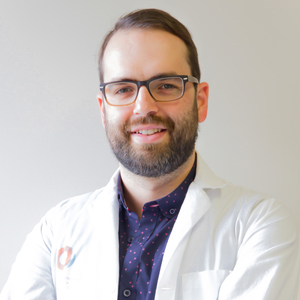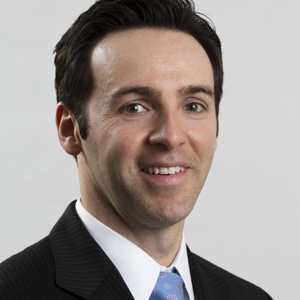Early career researchers join their European counterparts to advance our understanding of heart disease
According to the World Health Organization, cardiovascular diseases are the number one cause of death globally, accounting for an estimated 17.9 million deaths in 2016 in developed and low- and middle-income countries alike.
Recognizing that great things happen when researchers collaborate, in 2018, the CIHR Institute of Circulatory and Respiratory Health (ICRH) signed on to the third joint transnational call for proposals from the European Research Area Network on Cardiovascular Diseases.
Through an ICRH investment of almost $863,000 (and more than $2.6M from the Dutch, French, German, Italian, Polish and Turkish governments), three Canadian early career researchers now have the chance to collaborate with their European counterparts on multidisciplinary research projects to tackle cardiovascular disease.

Dr. Benoît Arsenault, Université Laval
Calcium is essential for strong bones, but calcium buildup in the heart can be a recipe for disaster
Dr. Benoît Arsenault received a grant to study aortic valve calcification, a condition in which calcium deposits form on the aortic valve and, over time, lead to a disease called calcific aortic valve stenosis.
Dr. Arsenault and his team will investigate whether there is a link between genes that regulate the amount of cholesterol in the bloodstream and this potentially deadly disease in mice and humans.
The results of his research could show that currently approved drugs that target cholesterol metabolism may be effective for preventing and treating patients with this condition, for which there are currently no drug therapies available.

Dr. Slava Epelman, University Health Network
Macrophages seemingly help and hinder the repair of damaged hearts
Dr. Slava Epelman and his lab will use their grant to pursue their study of how the immune system regulates cardiac tissue injury and repair, with an emphasis on deepening our understanding of the immune cells and pathways involved.
The lab is investigating the role of macrophages – the large white blood cells that are an important part of our immune system – to gain insight into their seemingly contradictory roles as both demolishers and repairmen of the heart muscle.
By subjecting heart models to stress from hypertension, heart attacks, and viral infections, the Epelman lab is exploring the role macrophages play in tissue damage and repair.

Dr. Katey Rayner, University of Ottawa Heart Institute
Understanding the sex differences in the buildup of plaque inside the arteries
Dr. Katey Rayner and her team are investigating the causes and treatments of atherosclerotic vascular disease – the buildup of fatty plaques in the lining of arteries that can result in heart attacks and stroke.
With this grant, Dr. Rayner’s team will attempt to gain a deeper understanding of how neuroimmune guidance cues (key regulators of cell movement) cause macrophages bearing the so-called “bad” cholesterol to become trapped in the artery wall, leading to chronic inflammation – and the role sex hormones might play in the process.
By leveraging an interdisciplinary team of experts in molecular cell biology, bioinformatics, and physiology, the team hopes to shed light on the gender differences in atherosclerosis and find gender-specific therapies to treat plaque build-up in both men and women.
- Date modified: